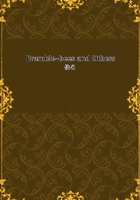
第43章 INSTINCT AND DISCERNMENT.(2)
The Pelopaeus supplies her larvae with provisions in the form of Spiders. There you have instinct. The climate, the longitude or latitude, the changing seasons, the abundance or scarcity of game introduce no modification into this diet, though the larva shows itself satisfied with other fare provided by myself. Its forebears were brought up on Spiders; their descendants consumed similar food;and their posterity again will know no other. Not a single circumstance, however favourable, will ever persuade the Pelopaeus that young Crickets, for instance, are as good as Spiders and that her family would accept them gladly. Instinct binds her down to the national diet.
But, should the Epeira (The Weaving or Garden Spider. Cf. "The Life of the Spider" by J. Henri Fabre translated by Alexander Teixeira de Mattos; chapters 9 to 14 and appendix.--Translator's Note.), the favourite prey, be lacking, must the Pelopaeus therefore give up foraging? She will stock her warehouses all the same, because any Spider suits her. There you have discernment, whose elasticity makes up, in certain circumstances, for the too-great rigidity of instinct.
Amid the innumerable variety of game, the huntress is able to discern between what is Spider and what is not; and, in this way, she is always prepared to supply her family, without quitting the domain of her instinct.
The Hairy Ammophila gives her larva a single caterpillar, a large one, paralysed by as many pricks of her sting as it has nervous centres in its thorax and abdomen. Her surgical skill in subduing the monster is instinct displayed in a form which makes short work of any inclination to see in it an acquired habit. In an art that can leave no one to practise it in the future unless that one be perfect at the outset, of what avail are happy chances, atavistic tendencies, the mellowing hand of time? But the grey caterpillar, sacrificed one day, may be succeeded on another day by a green, yellow or striped caterpillar. There you have discernment, which is quite capable of recognizing the regulation prey under very diverse garbs.
The Megachiles build their honey-jars with disks cut out of leaves;certain Anthidia make felted cotton wallets; others fashion pots out of resin. There you have instinct. Will any rash mind ever conceive the singular idea that the Leaf-cutter might very well have started working in cotton, that the cotton-wool-worker once thought or will one day think of cutting disks out of the leaves of the lilac- and the rose-tree, that the resin-kneader began with clay? Who would dare to indulge in any such theories? Each Bee has her art, her medium, to which she strictly confines herself. The first has her leaves; the second her wadding; the third her resin. None of these guilds has ever changed trades with another; and none ever will. There you have instinct, keeping the workers to their specialities. There are no innovations in their workshops, no recipes resulting from experiment, no ingenious devices, no progress from indifferent to good, from good to excellent. To-day's method is the facsimile of yesterday's; and to-morrow will know no other.
But, though the manufacturing-process is invariable, the raw material is subject to change. The plant that supplies the cotton differs in species according to the locality; the bush out of whose leaves the pieces will be cut is not the same in the various fields of operation; the tree that provides the resinous putty may be a pine, a cypress, a juniper, a cedar or a spruce, all very different in appearance. What will guide the insect in its gleaning? Discernment.
These, I think, are sufficient details of the fundamental distinction to be drawn in the insect's mentality; the distinction, that is, between instinct and discernment. If people confuse these two provinces, as they nearly always do, any understanding becomes impossible; the last glimmer of light disappears behind the clouds of interminable discussions. From an industrial point of view, let us look upon the insect as a worker thoroughly versed from birth in a craft whose essential principles never vary; let us grant that unconscious worker a gleam of intelligence which will permit it to extricate itself from the inevitable conflict of attendant circumstances; and I think that we shall have come as near to the truth as the state of our knowledge will allow for the moment.
Having thus assigned a due share both to instinct and the aberrations of instinct when the course of its different phases is disturbed, let us see what discernment is able to do in the selection of a site for the nest and materials for building it; and, leaving the Pelopaeus, upon whom it is useless to dwell any longer, let us consider other examples, picked from among those richest in variations.
The Mason-bee of the Sheds (Chalicodoma rufitarsis, PEREZ) well deserves the name which I have felt justified in giving her from her habits: she settles in numerous colonies in our sheds, on the lower surface of the tiles, where she builds huge nests which endanger the solidity of the roof. Nowhere does the insect display a greater zeal for work than in one of these colossal cities, an estate which is constantly increasing as it passes down from one generation to another; nowhere does it find a better workshop for the exercise of its industry. Here it has plenty of room: a quiet resting-place, sheltered from damp and from excess of heat or cold.